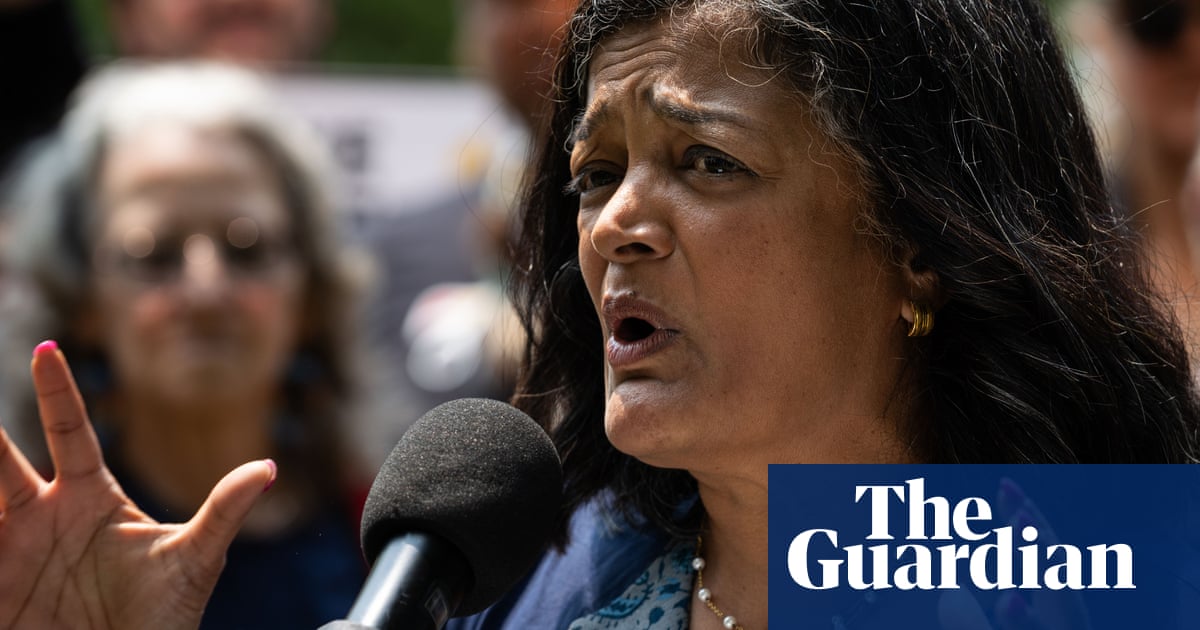Democratsand civil rights groups have criticizedDonald Trump’s travel ban on 12 countries as “reckless” and “racist” with some warning the policy may be an effort to distract Americans from Trump’s much-criticized tax bill.
Trumpsigned a sweeping orderbanning travel from countries including Afghanistan, Equatorial Guinea and Haiti on Wednesday night, claiming he had considered multiple factors, including “foreign policy, national security and counterterrorism goals” in deciding on the ban.
Adam Schiff, the Democratic senator from California, disagreed,callingthe move “Trump’s reckless first term travel ban all over again”.
“Just like before, Trump’s expanded ban on travelers from around the world will not improve our national security and will only further isolate the US from the rest of world [sic]. Bigotry is not a national security strategy.”
Pramila Jayapal, a Democratic congresswoman from Washington, said ina statement:
“This ban, expanded from Trump’s Muslim ban in his first term, will only further isolate us on the world stage. This discriminatory policy, which limits legal immigration, not only flies in the face of what our country is supposed to stand for, it will be harmful to our economy and our communities that rely on the contributions of people who come to America from this wide range of countries.
“Banning a whole group of people because you disagree with the structure or function of their government not only lays blame in the wrong place, it creates a dangerous precedent.”
Trump announced the ban as Republicans in the Senate weigh his tax and spending bill. On Wednesday, the nonpartisan Congressional Budget Office said the legislation, which would extend tax cuts and increase military spending,would add $2.4tnto the national deficit over the next decade and leave millions more people without health insurance.
“Not a coincidence Trump announced his travel ban tonight,” Chris Murphy, the Democratic senator from Connecticut,said on social media.
“He’s trying to distract us from the core story. And the core story is their bill to throw 15 million people off their health care in order to give a $270,000 tax cut to the richest Americans.”
Ed Markey, the Democratic senator for Massachusetts,saidthe ban “will not make America safer”.
“We cannot continue to allow theTrump administrationto write bigotry and hatred into US immigration policy,” Markey said.
Don Beyer, a Democratic congressman from Virginia,saidon social media: “From his first Muslim Ban, Trump’s travel bans have always betrayed of [sic] the ideals and values that inspired America’s Founders. Trump’s use of prejudice and bigotry to bar people from entering the U.S. does not make us safer, it just divides us and weakens our global leadership.”
Beyer added: “This policy will separate families, including many I represent. And with Trump’s assault on asylum and refugees, it will intentionally put people at deadly risk. The true rationale isn’t security, it’s racism.”
Trump’s move was also condemned by human rights organizations. In a social media post, Amnesty International USAdescribed the banas “discriminatory, racist, and downright cruel”.
“By targeting people based on their nationality, this ban only spreads disinformation and hate,” Amnesty said.
The Council on American-Islamic Relations (Cair), the nation’s largest Muslim civil rights and advocacy organization, said the ban was “overbroad, unnecessary and ideologically motivated”.
“Automatically banning students, workers, tourists, and other citizens of these targeted nations from coming to the United States will not make our nation safer. Neither will imposing vague ideological screening tests that the government can easily abuse to ban immigrants based on their religious identity and political activism,” said Nihad Awad, Cair’s national executive director.
Trump had earlierissued a proclamationto block nearly all foreign students from attending Harvard university, continuing the president’s targeting of the Ivy League school. The order suspends, for an initial six months, the entry into the US of foreign nationals seeking to study or participate in exchange programs at Harvard.
Harvard responded to Trump on Thursday,describing his orderas “yet another illegal retaliatory step taken by the administration in violation of Harvard’s first amendment rights”.
